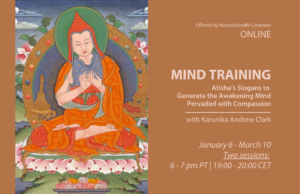The phone rings. An alleged bank executive informs me that some unfamiliar charges have appeared in my account. The situation has to be addressed immediately to prevent further damage.
Gap
“Something is not right,” says (almost inaudibly) a part of my mind.
Gap
“I feel so protected and seen,” says (much more audibly) another part of my mind. “She seems so trustworthy.”
Gap
The alleged executive keeps weaving her web around me and my thoughts and my emotions. “Something is not right,” repeats (almost inaudibly) a part of my mind, the wise part. My body knows, too: a slight clenching in my stomach tries to warn me.
Gap
I do not even stop to think or acknowledge what my own wisdom and my body are telling me. Feeling cared for feels so good, and the script is so well assembled that I — yes, that would be my poor old, ignorant ego — fall for it completely.
Gap
“Something is not right,” keeps repeating (almost inaudibly) the wise part of my mind, as my stomach clenches further.
Gap
The phone connection is lost. The executive calls back. She has me share my username, my password and PIN. (The wise part of my mind watches dumbfounded, but the ego does not seem to notice.)
Gap
The phone connection is lost again, but the “executive” does not call back. I wait. Nothing happens. So, I decide to call my trusted executive at my regular bank office. (The wise part is finally taking over.)
“Please tell me you did not share your username and password,” she pleads.
“Of course I did,” boasts my ego.
“You have been a victim of a fraudulent call,” she declares. “Call the following number and cancel EVERYTHING!”
I follow her instructions. My hands are trembling. All my assets, which are not many, are on the line.
In the end, the situation was resolved just in time. Although I would have to renew my online banking access and replace my credit cards (only a matter of time), no real harm was done. When I played back the telephone conversation in my mind, I was able to see all the things that did not make sense, and I was also able to see how my (confused) mind had even surpassed the fake executive’s slyness. And that is what (ego) mind does when we are not mindful: It can take over any situation and reinterpret it in terms of its own convenience (imagining being cared for or accepted by others to validate its needs, for instance), disregarding both our own wisdom and the signs reality offers us.
(Confused) mind is the best con artist ever, I realized. But we always have the chance to stop and let wisdom, the clear and lucid nature of our mind, manifest.
Exercise/Meditation/Ejercicio
So next time your confused mind tries to trick you into playing out your habitual neurotic patterns, try the following:
- Breathe, which opens a gap in the experience, and check into your body sensations (wisdom mind manifests through them, too). Try to just notice them without adding any storyline.
- Do not rush to respond or try to fix the situation immediately (you might end up sharing your username and password with a stranger).
- Allow your innate wisdom and intuition to shine through without blocking them with discursiveness. (You can trust the spacious and luminous nature of your mind.)
- Repeat as needed.

is a writer, translator, psychotherapist, teacher and, mother from Mexico. She is now working on a bestiary in poetic prose. She has practiced meditation for over 24 years and has been a student of Ponlop Rinpoche’s since 2002.






